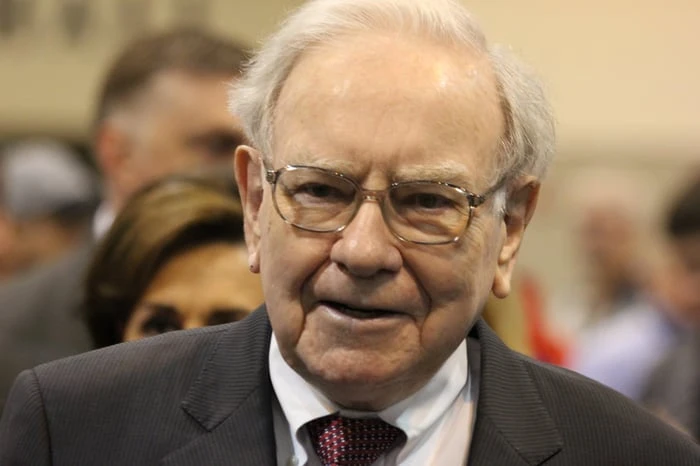Contents
Inside Berkshire Hathaway’s Evolving Portfolio
Warren Buffett’s Berkshire Hathaway (NYSE: BRK.A)(NYSE: BRK.B) is renowned for its meticulously curated stock portfolio, making any of its investment moves closely watched by investors worldwide. Recent actions by Berkshire, including the sale of top stocks like Apple, Bank of America, and HP, while bolstering its cash reserves to unprecedented levels, have certainly caught the attention of the market.
Market Interpretations of Berkshire’s Moves
The decision to offload these stocks led some investors to speculate that Berkshire anticipates a market correction, suggesting an overheated market. However, Berkshire’s strategic maneuvers also included retaining key positions and initiating investments in other promising stocks. This article delves into three such resilient stocks — Coca-Cola, American Express, and Ulta Beauty — to understand why they might still be compelling investment opportunities.

Coca-Cola: A Long-standing Favorite
Coca-Cola has been a staple in Warren Buffett’s portfolio since 1988. Berkshire holds a significant 9.3% stake in the beverage giant, amounting to 400 million shares, which represents 9.2% of its entire portfolio.
Diversification and Resilience
Beyond its iconic soda, Coca-Cola’s product lineup includes teas, fruit juices, sports drinks, bottled water, coffee, and even alcoholic beverages. This diversification has helped it weather numerous economic downturns over the years. Coca-Cola’s consistent dividend growth over 62 years and a forward yield of 2.7% make it attractive, especially as interest rates decline.
Recent Performance and Future Projections
While the pandemic posed challenges due to restaurant closures, Coca-Cola has seen a resurgence over the past three years, driven by strategic price hikes to combat inflation. The company anticipates a 9% to 10% increase in organic sales this year. Analysts project that from 2023 to 2026, Coca-Cola’s sales and earnings per share (EPS) will grow at compound annual growth rates (CAGRs) of 4% and 9%, respectively. Despite these steady growth rates, the stock remains reasonably priced at 24 times forward earnings.
American Express: A Unique Financial Player
Berkshire’s investment in American Express began in 1998, and it now possesses 151.6 million shares, translating to an 11% stake in the company and comprising 12.7% of its portfolio.
Differences from Competitors
Unlike Visa (NYSE: V) and Mastercard (NYSE: MA), American Express operates as a bank, payment processor, and card issuer. This means American Express assumes debt and earns interest on its loans, whereas Visa and Mastercard solely generate revenue through transaction fees.
Business Model and Growth Prospects
American Express’s focus on affluent customers with strong credit scores generally shields it from broader economic challenges. Although its acceptance overseas isn’t as widespread as Visa or Mastercard, it is steadily expanding its international footprint. Analysts foresee a 9% CAGR in revenue and a 15% CAGR in EPS from 2023 to 2026, with the stock appearing undervalued at 17 times forward earnings and offering a forward dividend yield of 1.1%.
Ulta Beauty: A Newer Addition to Berkshire
Ulta Beauty is among Berkshire’s more recent acquisitions, with 690,106 shares purchased in the second quarter of 2024. This stake represents 1.5% of Ulta’s shares but only 0.1% of Berkshire’s entire portfolio.
Growth Story and Challenges
After going public seven years ago, Ulta has thrived by establishing standalone stores, offering in-store salon services, and selling a diverse range of products from budget to luxury brands. Its strategic partnerships, such as with Kylie Cosmetics, and targeting younger audiences through social media and loyalty programs have further bolstered its growth. However, recent concerns about slowing comparable sales growth, increased promotions, and rising expenses have impacted its stock.
Future Outlook and Valuation
Analysts predict Ulta’s revenue to remain stable, with an 11% decline in EPS for the full year. Nonetheless, from 2023 to 2026, revenue and EPS are expected to grow at a CAGR of 3% as economic conditions stabilize. Despite seemingly modest growth rates, Ulta’s stock appears undervalued at 16 times forward earnings. With a $2 billion buyback plan announced in March, representing over 11% of its market cap, Ulta could be a significant value play if growth accelerates.
A Technological Revolution on the Horizon
Imagine a technological innovation that could eclipse the value of 30 Nvidias, potentially reaching $80 trillion. This groundbreaking technology is stirring excitement on Wall Street, with experts predicting it will revolutionize various aspects of life. To learn more about this transformative tech breakthrough, explore further insights from our experts.
Learn more ›




